Last week, just before Extraction premiered on Netflix, Umapagan Ampikaipakan caught up via video chat with three of the movie’s stars. Rudhraksh Jaiswal, plays Ovi Mahajan, the young boy whose kidnapping is at the centre of the movie. Randeep Hooda, plays Saju, the loyal henchman torn between his family and his job. Priyanshu Painyuli, plays Amir, the Bangladeshi drug lord and primary antagonist in the film.
The following interview has been edited for length and clarity.
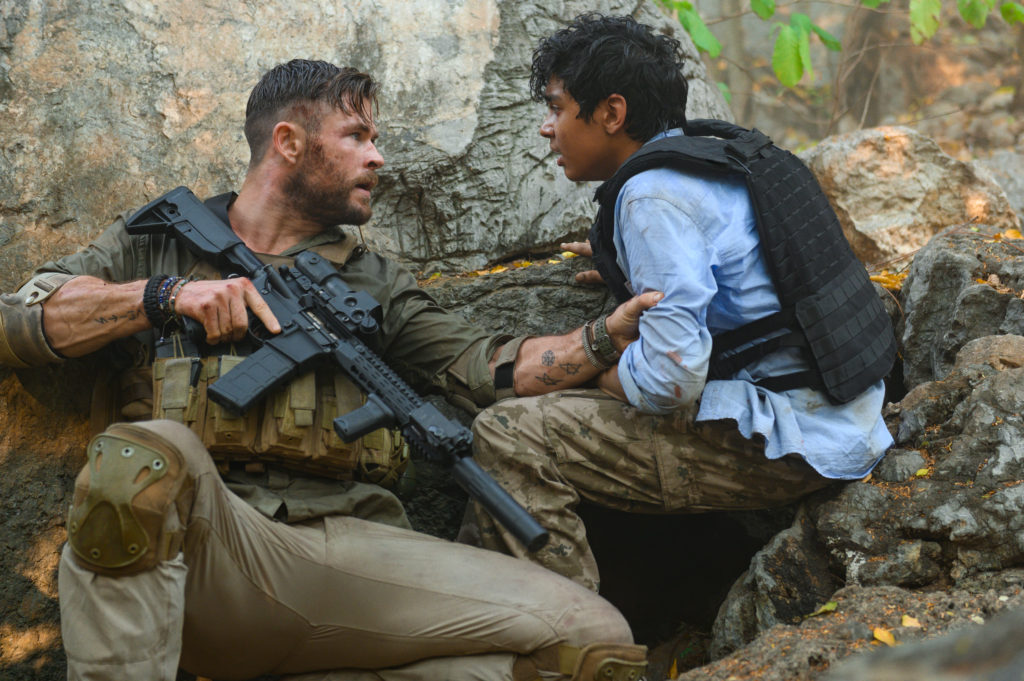
Let’s start with you Rudraksh, talk to us about how you landed the part of Ovi. What was the audition process like?
Rudraksh Jaiswal: I was auditioned for Extraction by Tess Joseph. She called me for the audition. She gave me the script. There were four to five scenes and I learnt them with my mum. My mum is like my screen rehearsal partner. She comes with me to every audition. It’s really very helpful. Anyway, I went through five to six rounds of auditions. That was really very difficult. But I eventually bagged the role. And then Tess Joseph told me that the director is Sam Hargrave and I was overwhelmed. Looking at his past work experience, he’s done a lot of action direction in films like Avengers: Endgame and Avengers: Infinity War. And I’ve been a huge fan of his work. He auditioned me through a lot of tough sequences, including quite a few action sequences, and then he told me, “you will be working with Chris Hemsworth”. And it felt like a dream come true when I heard that. My heart skipped a beat. It’s been a childhood dream to work with someone like him. I’ve grown up watching his films. I’ve always been a huge fan of the characters he plays in his films. He portrays them with such uniqueness. It’s great fun to watch.
Priyanshu, playing the bad guy is always fun, but it can’t always be easy. You play Amir, who comes off as being someone with no redeeming qualities whatsoever. He is truly a bad guy. How do you get into that mindset? Do you have to find some good in a character in order to play him?
Priyanshu Painyuli: Absolutely. But more than finding that, I start believing that what this guy is doing is right. For him, whatever he is doing is the right thing. The kind of decisions he is taking is right. He’s got the power in his hands. He’s got an army to fight for him. I decided to try and understand that. I went through some documentaries to try and understand Dhaka. My toughest thing was to get the language right. Because I don’t speak Bangladeshi. The language was alien to me. It was not my first language or my second language. But I had some great prep time. For two to three months, I was just learning my lines and keeping them ready so when I am performing it doesn’t look like I’m searching for my words. But they made me really comfortable. Even during the shoot, Sam kept saying things like, “take your time, I was looking at your eyes, and that’s what’s speaking to me”. So that gave me a lot of confidence.
A lot of gold and some nice flashy shoes also gave me a lot of confidence. I suddenly felt like I’m in the mafia. There was a gold chair for me. A big dinner was laid out. A big painting of me on the wall. The setup really helps you get into the role. For me the shoes really matter. In every role, the kind of shoes I’m wearing helps me get into the right attitude. Wearing flashy snake print high heeled shoes – which I would never wear in my life – makes you a different person.
And your role is harder still because you play someone who doesn’t get his hands dirty. You’ve got all these henchmen that you order around. What was your process in trying to make sure the audience both fear you and hate you?
PP: That’s what made the part so interesting. Because he’s not on the ground doing the actual fighting. He’s not there getting dirty. He’s just sitting in his palace. In fact, Sam and I had an idea for him to just sit in every scene and give orders. I only get up at the very end. Because only then is it very important for Amir to stand. That shows power. That shows a guy who is very confident in what he’s saying. He is commanding throughout. Either giving orders or spouting philosophy. And to be menacing, I don’t think you need to shout your power. You don’t have to be dirty to be menacing. You just have to be clear with what you’re saying. And he was clear. If he wants a finger cut, he wants a finger cut. If we wants someone dead, he’s not going to shoot him, the guy next to him is going to do it. I just had to keep that in mind. This guy is really powerful. He knows what he’s doing. And that’s what makes it scary. When a person is really confident in his actions and he knows what he can do with you.
“To be menacing, I don’t think you need to shout your power. You don’t have to be dirty to be menacing. You just have to be clear with what you’re saying.”
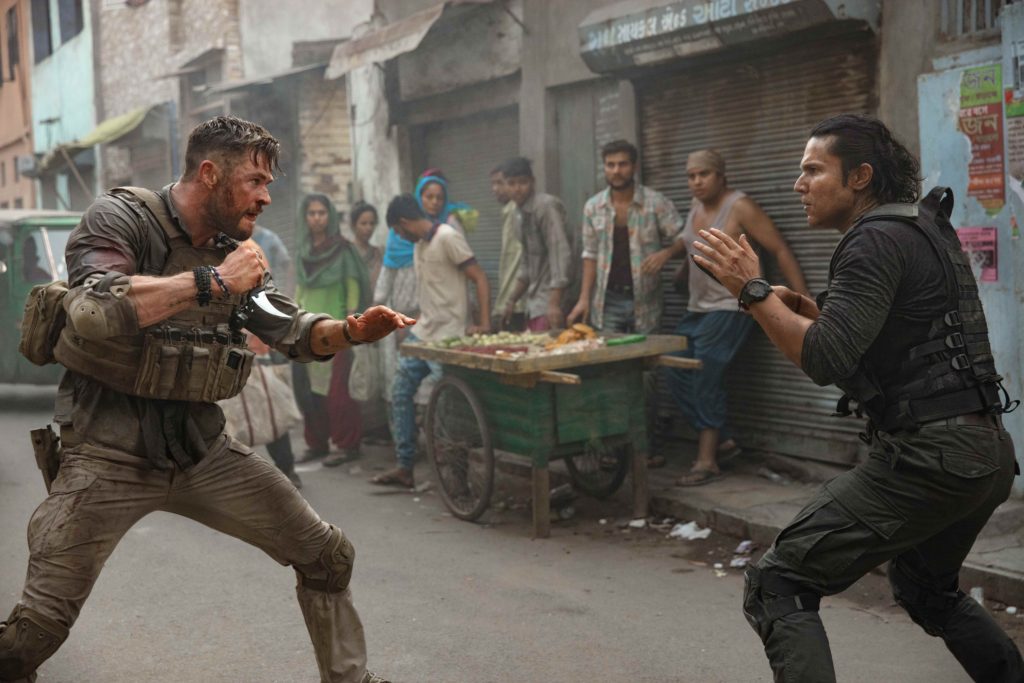
Randeep, your character is particularly interesting. I know where I stand with both Ovi and Amir. I like one. I hate the other. With you, it was a roller-coaster of emotions. I didn’t know whether to love you or hate you.
Randeep Hooda: Well, that’s a good thing. That’s an evolving relationship.
Your role is so demanding both mentally and physically. Talk to me about how you went about preparing for that.
RH: I think in a role like this, the physicality requires a lot of mental preparation. The physicality is very important to a role like this. Yes there is a mental process that one goes through, but the physicality helps a lot. All these long action rehearsals, with the best and the toughest people in the action world, also helps. And working with Chris (Hemsworth), who has a great physical presence and is a very committed actor.
Sam (Hargrave) and I talked a lot about Westerns. Like The Good, the Bad, and the Ugly and other Sergio Leone movies. And from those archetypal characters, we took a step back. Because Sergio Leone was very inspired by Akira Kurosawa. So we came up with a very samurai like feel to this character. We don’t know if he’s good or bad. That’s what keeps the interest alive with regards to discovering what’s going on with Saju.
“Love for the family is universal and that is an aspect in this film with every character. And that’s what makes this film rooted and emotional. It is a universal feeling to all the 190 countries that this movie is going out to.”
Which brings to me to “that” scene. Your director, Sam Hargrave, cut his teeth as a stunt coordinator. What was that like on set, making an action movie with someone who has that sort of experience?
RH: The first time that they showed me the action rehearsal of the whole fight that was going to happen, I looked at it and thought, “shit, I’m in the wrong place.” And I looked at Sam and he just shrugged and went, “well, this is just what you gotta do.” He was very matter of fact about it. But for Sam to be there with us, in the action, with the camera, was what made it all work. Sam is hanging off cars with these harnesses. He’s jumping down buildings on a rope. Nobody else could have done it. The cinematography is obviously great by Tom Siegel. He’s done Bohemian Rhapsody and The Usual Suspects. But for the action parts it was Sam’s operation that made it so much more glorious. As a director, Sam is the kind of person who, if you want to try something, would just go, “yeah, try it, what’s the harm?” He pulled this all off with great aplomb.
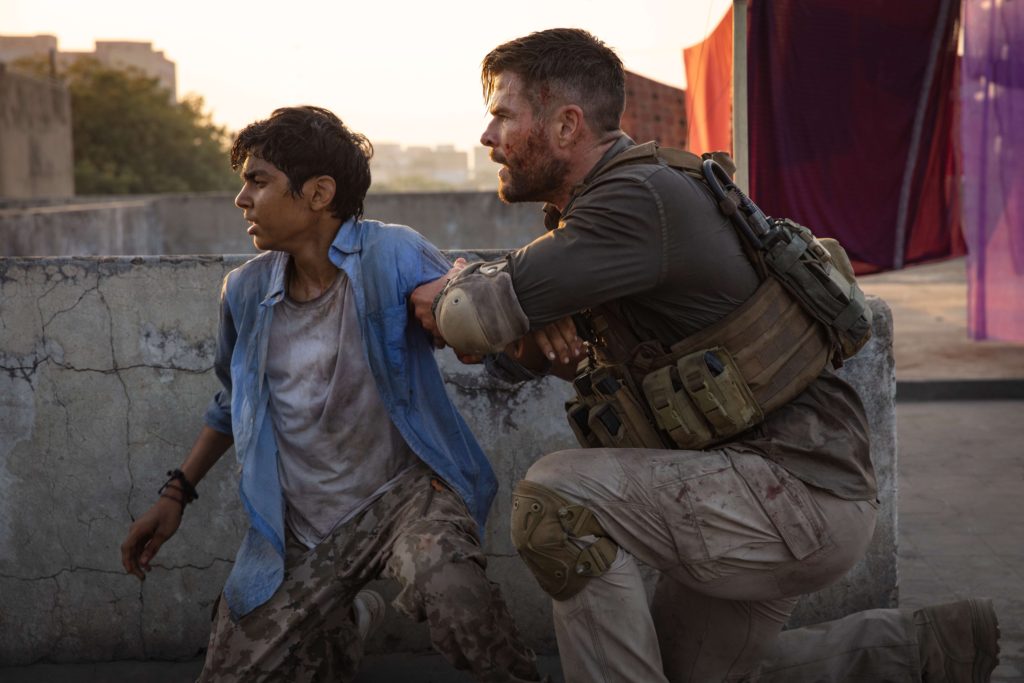
Netflix has been making some great content in India over the last few years – Sacred Games, Delhi Crime, Selection Day – and I wanted to ask you, as actors, if you’ve seen any spillover effects on the industry as a whole?
RJ: I feel that it’s been a really good opportunity for filmmakers and actors. The good thing about Netflix is that when films come out, they stay there forever, so it keeps bringing new people to your films. And there is global reach. This also sparks a global conversation. There is also less restriction with regards to language or location. So even if you don’t live near a movie theatre, or speak a different language, you can still enjoy films. That’s why Netflix is so huge in India.
PP: In the industry, what I’m seeing now is that people are taking new kinds of scripts. We can make stories like my last Netflix movie, Upstarts, which was about a startup company in Bangalore. I don’t think the director would have been able to put that on screens elsewhere. I know there’s a different dynamic with trying to get people to the cinema. But here, I can take an interesting concept about two people in a room, and if it’s a good film, Netflix puts it out. The problem now is that your movie has to be very engaging. Because if a bell rings while you’re watching it, you’re going to get distracted and leave the room. So you’re going to have to make things that are interesting and engaging. And that is what’s becoming challenging for writers, directors, and actors today.
RH: I think there’s a lot of liberty for a lot of filmmakers to take ideas which they previously couldn’t put out there. People are taking more risks. The production value is very good. You’ve got a cinema in your home. You want to watch an Israeli film? You want to watch a Korean film? You want to watch a Japanese film? You want to watch a Malaysian film? It’s a beautiful coming together of cultures. Human emotions across the world are the same. And that’s what this content is made of. And that is what Extraction is also all about. Yes, it is mind-boggling action, but at the end of the day, it is rooted in family and emotions, and that’s what gives it a special quality.
Thank you so much for your time gentlemen. Once again, I really enjoyed your film. It kept me at the edge of my seat. Stay safe and hopefully we’ll all be able to leave our homes soon.
RH: You’ve reminded me of how much I love those chicken peanut sticks.
Satay?
RH: Satay. God. I’ve been thinking about that the whole time we’ve been talking.
Extraction
Netflix
117 minutes
Director: Sam Hargrave
Writer: Joe Russo
Cast: Chris Hemsworth, Rudhraksh Jaiswal, Manoj Bajpayee, Randeep Hooda, Priyanshu Painyuli, Pankaj Tripathi, Derek Luke, Marc Donato, and David Harbour

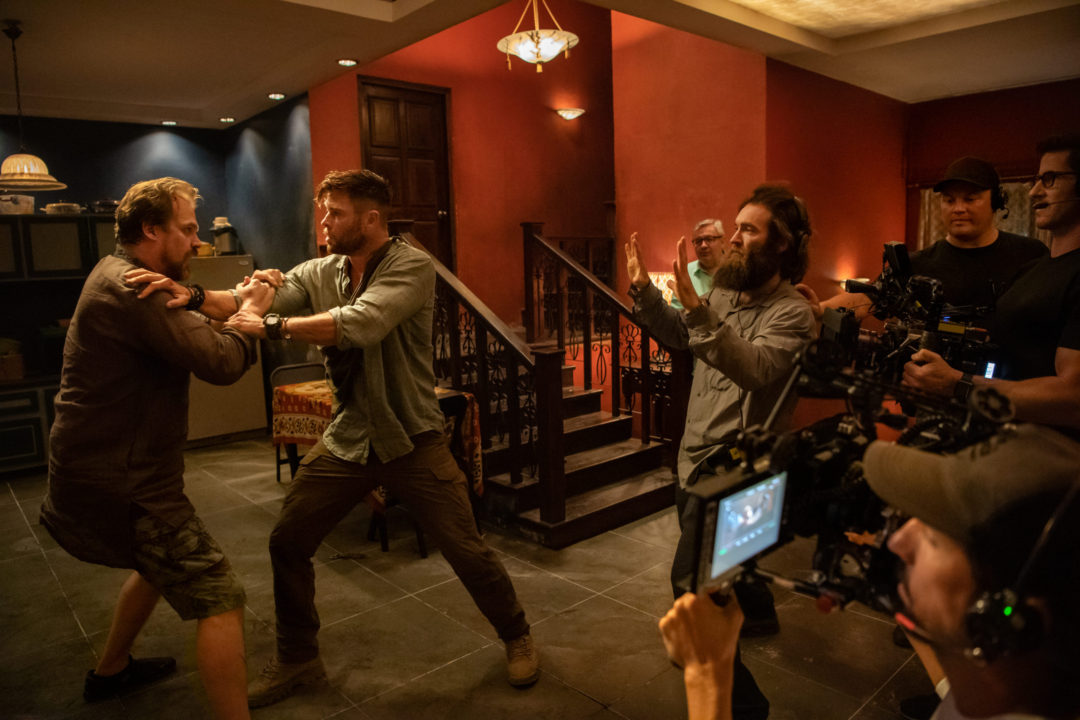
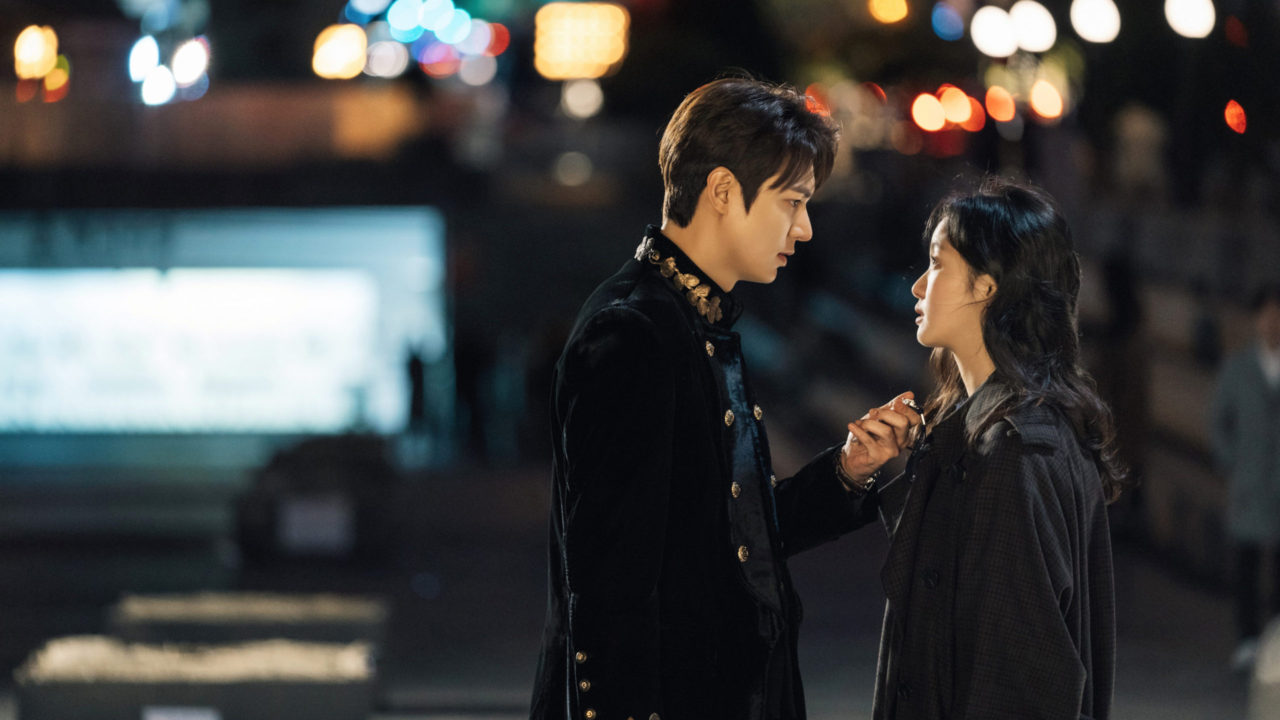

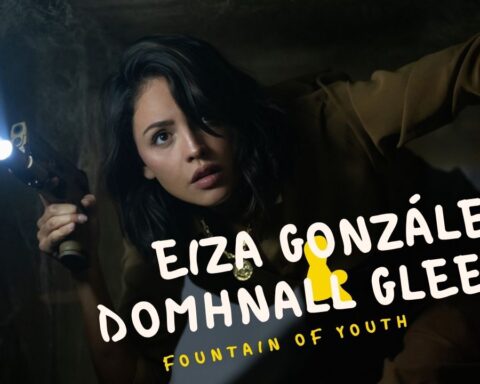
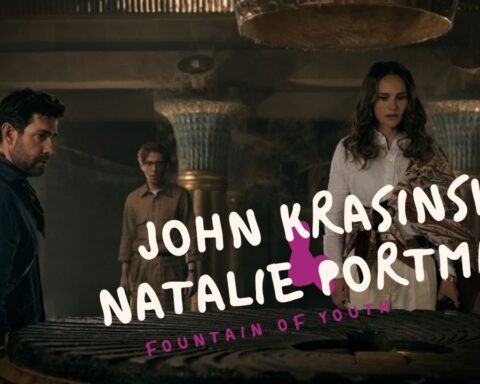
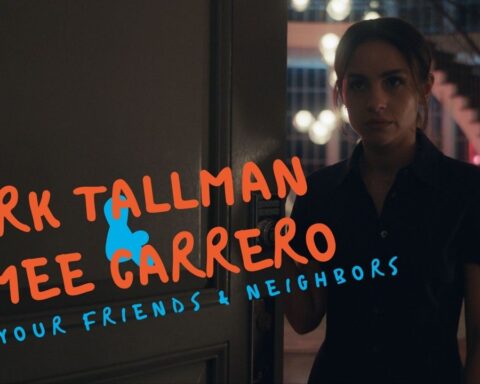
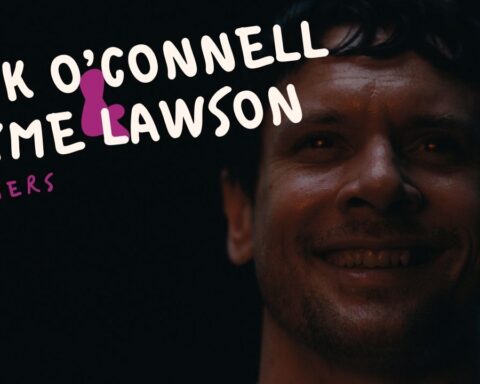
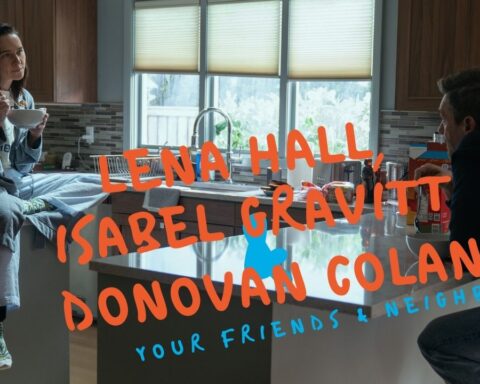
Follow Us